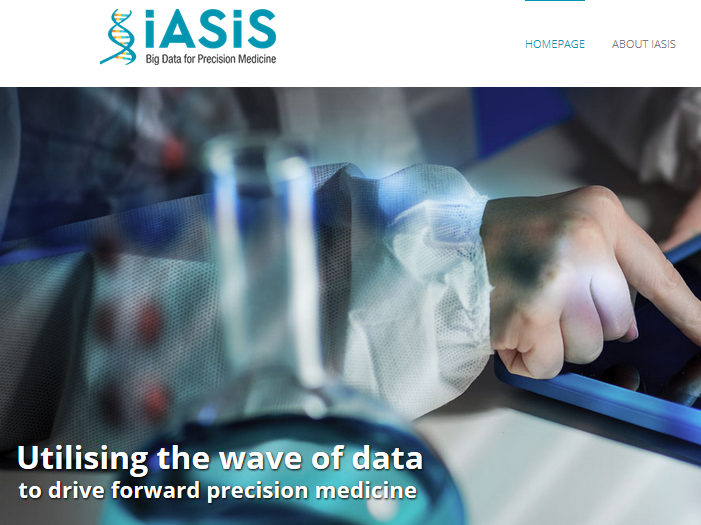Big Data to personalise therapy for Lung Cancer and Alzheimer’s diseases. Analysing data with the iASiS platform.
The iASiS project has built an electronic system to support clinicians in providing personalised diagnosis and treatment for patients with Alzheimer’s Disease (AD) and Lung Cancer. The project, which comes to an end in June 2020 after three years, brought together researchers and doctors who collaborated successfully to turn the wave of existing big biomedical data into actionable knowledge for decision makers, doctors and policy makers by applying advanced analytics methods to discover useful patterns. The end result of this coordinated work is the creation of an electronic platform that automatically collects, integrates and analyses large amounts of available data ranging from electronic medical records, genomics, imaging databases (X-rays), and bibliography, integrating this knowledge into a big data infrastructure providing useful insights and high-level analysis in the form of a knowledge graph. Turning these large amounts of data into actionable knowledge may enable policy makers for better planning of public health activities and policies. The bigger objective of the project is for personalised patient diagnosis and treatment of these two diseases with the longer-term ambition of this approach to be more widely applicable to other diseases. The iASiS partnership, composed of 9 European organisations and one university in the USA, began work in April 2017 under the coordination of George Paliouras, Research Director at NCSR Demokritos, Greece. The challenges were evident right from the start of the project as partners were faced with the complexity of sourcing large amounts of diverse patient information, whilst trying to convert them into something the system can read. The aggregated data was analysed with the use of intelligent methods so as to discover useful patterns across different resources. Using semantic integration of data gave us the opportunity to generate information that is rich, auditable and reliable thus using it to provide better care, reduce errors and create more confidence in sharing data and providing more insights. The study of these diseases is two-fold: oncologists specialising in Lung Cancer, the Spanish Lung Cancer Group and Madrid’s Health Service, provided access to clinical data. Neurologists and specialists on AD such as St George’s University of London and Alzheimer’s Research UK, both in the UK, provided insights from aggregated patient data on these diseases and specialist knowledge to help technical teams integrate the information into the system. The Polytechnic Univ. of Madrid and the Centre for Genomic Regulation in Spain collaborated with researchers at NCSR Demokritos in Greece to analyse the clinical data and decipher the genetic code in both of these diseases and combine them with available literature and open databases. Through the analysis of open data, researchers at NCSR Demokritos created the CogAware Module which analyses multi-lingual AD patients’ language data to detect interesting language biomarkers for the early diagnosis of AD. Technical expert teams from the Univ. of Hannover in Germany, in collaboration with the Institute for Advanced Computer Studies at the University of Maryland in the USA, provided a common schema for aggregating all the heterogeneous data into a database called the iASiS Knowledge Graph (KG) and developed all the necessary techniques to combine and analyse them, so as to identify population patterns. The iASiS KG is used to analyse the aggregated data and extract patterns and predictions, such as drug-drug interactions and side-effects, as well as prediction models for long/short survival of Lung Cancer patients. The project’s sole industrial partner, the Athens Technology Center, has built the iASiS Platform providing a graphical user interface that delivers the results of the aforementioned tasks to clinicians and policy makers. More info on the project: http://project-iasis.eu/(opens in new window)



